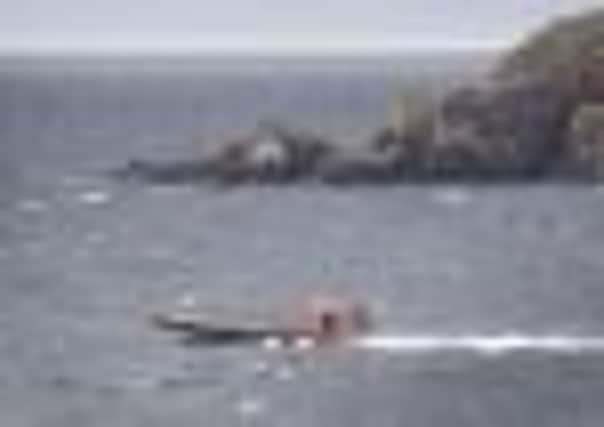Dani Garavelli: Tragedies should not end quest for adventure


I mention this because – in the midst of the blame-laying that has followed the deaths of Ewen Beaton, his two sons Ewen, five, and Jamie, two, and Garry Mackay’s five-year-old daughter Gracie; in the midst of all the talk about the dangers of their open vessel and their failure to wear life jackets – an important point is being overlooked. Yes, they made a series of catastrophic decisions, and paid a terrible price for them, but their errors of judgment were made in good faith. Unlike the “deadbeat” dads so often seen in the pages of tabloid newspapers, they were an active presence in their kids’ lives. At the heart of their fathering was the desire to open their children’s eyes to new experiences; to widen their horizons.
Their apparent failure to take adequate precautions notwithstanding, the men were the victims of sheer bad luck. Every day, loving parents wittingly or unwittingly jeopardise their children’s safety. Perhaps they leave the latch off the gate, allowing them to wander on to the road; or they double-strap them in the car so they can transport one extra person; or they give in to pressure to allow them to cycle without their helmets. And mostly they get away with it. Canadian canoes may or may not be inherently unstable, but how many others have navigated the waters of a Scottish sea loch in one without major mishap? No-one knows what went wrong for these two families, but a second’s lapse in concentration or a tiny twist of fate can be all that separates a once-in-a-lifetime experience from a never-ending nightmare.
Advertisement
Hide AdAdvertisement
Hide AdAs someone who invests a disproportionate amount of time obsessing about the dangers I perceive lurking around every corner (I’m not being flippant here, I really do), I have thought a lot about the protection-versus-adventure equation. Having spent much of my life writing about freak accidents, I’m unhealthily well-informed about potential calamities. There isn’t an activity, my children complain, from making a dam to loading a dishwasher, which doesn’t wring from me some dire warning, backed up by an account of a real-life disaster.
And yet, as a family, we do take risks. Last summer we spent a week in Marrakech shortly after a bomb attack. And that turned out to be the least of our worries. Every day – as we hauled our children across roads thick with speeding trucks, dilapidated taxis, and horses and carts, with not a traffic light in sight – I told myself: “We must be mad to have brought them here.” We survived, and the children say they wouldn’t have missed all that vibrant chaos for the world. So we made the right choice. But what if something had gone wrong? We would have made the wrong choice and carried the guilt with us forever. And where would we stand on the issue of risk then?
On the other hand, if we look at tragedies such as the one at Gairloch and allow ourselves to become paralysed by fear, we will do nothing, and what kind of a fate is that? If we never ride a surfboard, if we never climb a hill, then won’t we be depriving ourselves of some of the best that life has to offer?
To an extent, sociologists say, this is already happening. So concerned are some about the way today’s children are being cosseted, they are exhorting parents to be more adventurous. The ever-popular Dangerous Book For Boys includes information about how to use a catapult and build a treehouse. And last year the National Trust published a list of 50 things to do before you’re 11¬. Number 50 reads “canoe down a river”.
It was this spirit, it seems to me, that Ewen Beaton and Garry Mackay were tapping into when they set out on their expedition. What followed had the most devastating consequences both for those who died and for those who are left to mourn them.
Even the most intrepid adventurers ought to assess risk, particularly if they’re responsible for children. And although, as I understand it, the weather was fine, there can’t be many people who would take four under-nines out on the sea in one canoe, given their propensity for wriggling around.
There are already lessons to learn, not least the difference between lifejackets, which are designed to keep your head out of the water even if you’re unconscious, and buoyancy aids which apparently are not (a distinction lost on many parents, including me). When all inquiries have been completed, there may be more.
In the meantime, the scale of the Gairloch tragedy is so shocking it cannot help but force us to re-examine our attitude towards outdoor activities, particularly where water is involved. But it would be sad, I think, if the conclusion that we drew from it was not that physical risks should be evaluated and minimised (with all possible precautions taken), but that they should be eliminated from every aspect of our children’s lives. It is, after all, only by getting out and doing things that they can begin to engage with the world around them. «